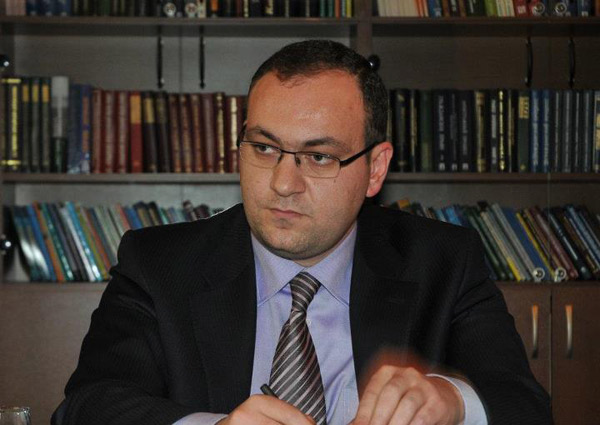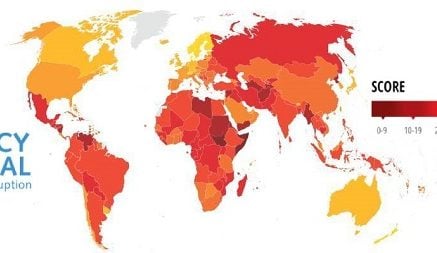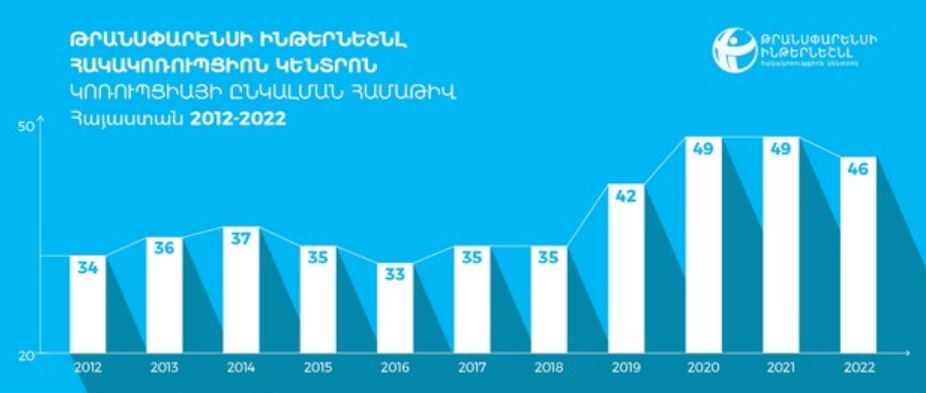Recently, the “Corruption barometer -2013” of the “Transparency International” Anti-Corruption organization was published, according to which, three systems in Armenia were recognized as the most corrupt system in an index of 4.0 (maximum 5 is the most corrupt, minimum 1, is not corrupted at all), the judicial system, healthcare system and the public officials / public servants. At the request of “Aravot”, The head of the International Cooperation and Public Relations Service of RA Judicial Department Arsen Babayan commented on this fact. Noticing that the study by the “Transparency International” is put into question because it includes the opinions of ordinary citizens and the community, Mr. Babayan said that the reasons due to which the level of corruption in the judicial system is perceived so high by the citizens are a lot. “Starting from wrong judicial acts, some of which are later amended, and some part is not, with regard to the rights to judicial process, up to the opinion formed in the result of advocatory activities.
We all know of cases in which lawyers give promises to definitely win in order to earn money and not to lose a customer, although pursuant to internal rules the lawyers have no right to disperse such promises, and when they do not win at the trial, to justify themselves, of course, they threw the blame on the courts.” When mentioning the reasons, he did not deny that there is a problem with some judges to be corrupted. “We have never concealed it and do not want to hide either. And, naturally, all these causes together create a public perception of the judicial system to be corrupted.”
Anyway, Mr. Babayan believes that there is a definite trend of improvement, as the corruption of the judicial system in Armenia in 2010 with the same “Corruption Barometer” of the “Transparency International” was at a higher level, an index of 4.1, at a time when globally this number was lower, 3.3. It appears that the corruption of the judicial system is perceived to be higher every year, and we have the opposite. Mr. Babayan also added that the possibility of the error in all these researches is 0.3. The head of Public Relations of RA Judicial Department explains the dynamics of decreasing the perception of corruption within the judicial system with the work of the Council of Justice, in the first place. Specifically, in 2012, disciplinary liability was imposed on 22 judges, in 2013, disciplinary liability was already imposed on more than 20 judges, including the one who was dismissed, and so on.
To the question of “Aravot” as to what other ways do you see take out the label “corrupted” from the judicial system, Mr. Babayan replied,- “Of course, the judges are independent, and except as provided by the law it is not possible to interfere in their activities in any other way. But, at the same time, the policy of judiciary is moving towards improvement. For example, if in 2008 we had 3 justifications by the RA courts, then 20, then 50, and in 2012, we already had 84 justification, which makes 2% of people to sue. This, of course, talks about decrease of corruption practices, and increase of independence of judiciary, and so on. I have already said about the responsibilities of judges that in 2008 only one judge was subjected to judicial liability and 22 of them in 2012. To the point, 22 judges make 10% of all judges in Armenia. This is a very good indicator, on the one hand, with regard to elimination of the shortcomings, and a bad indicator, on the other hand, that so many judges were subjected to responsibility.”
Read also
To our question whether there is a certain inertia in people’s perception, we are accustomed for many years that the judges are grafters, and now whatever changes, we keep thinking the same way, Mr. Babayan replied,- “Of course, there is, and this result that the” Transparency International” has registered a 0.1 point step towards positive as compared to the previous time, is the confirmation of it. We make small but steady steps towards improvement. I would also add that during one of the recent researches of the World Bank, about 55% of the respondents have said that they have heard from the press and other citizens about the corruption of the judicial system, and 13 percent of the respondents have said that they personally or their relatives have dealt with it.
In response to another survey, it was revealed that 70% of respondents were satisfied in full or in part with the judicial acts of judges. This, of course, is not a perfect indicator, but it is pretty good if we compare, for example, with the indicators of 2009, when only 49% were satisfied”. He presented data from another study, which was conducted by the American Association of Lawyers in the end of 2012. “The Republic of Armenia has registered a positive shift in 7 out of 30 factors envisaged by the Judicial Reform Index. We have a negative shift in two factors, in fact, one of them refers to the cases of accountability of judges. I have already mentioned that it’s good that many shortcomings are revealed, on the one hand, but it is bad, on the other hand, that this number is constantly growing. No changes were registered for the remaining 21 factors.”
Melania BARSEGHYAN


























































